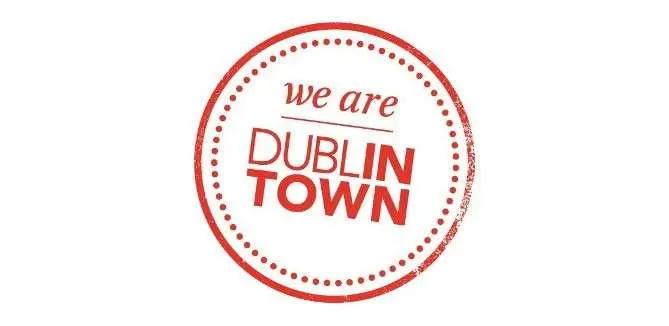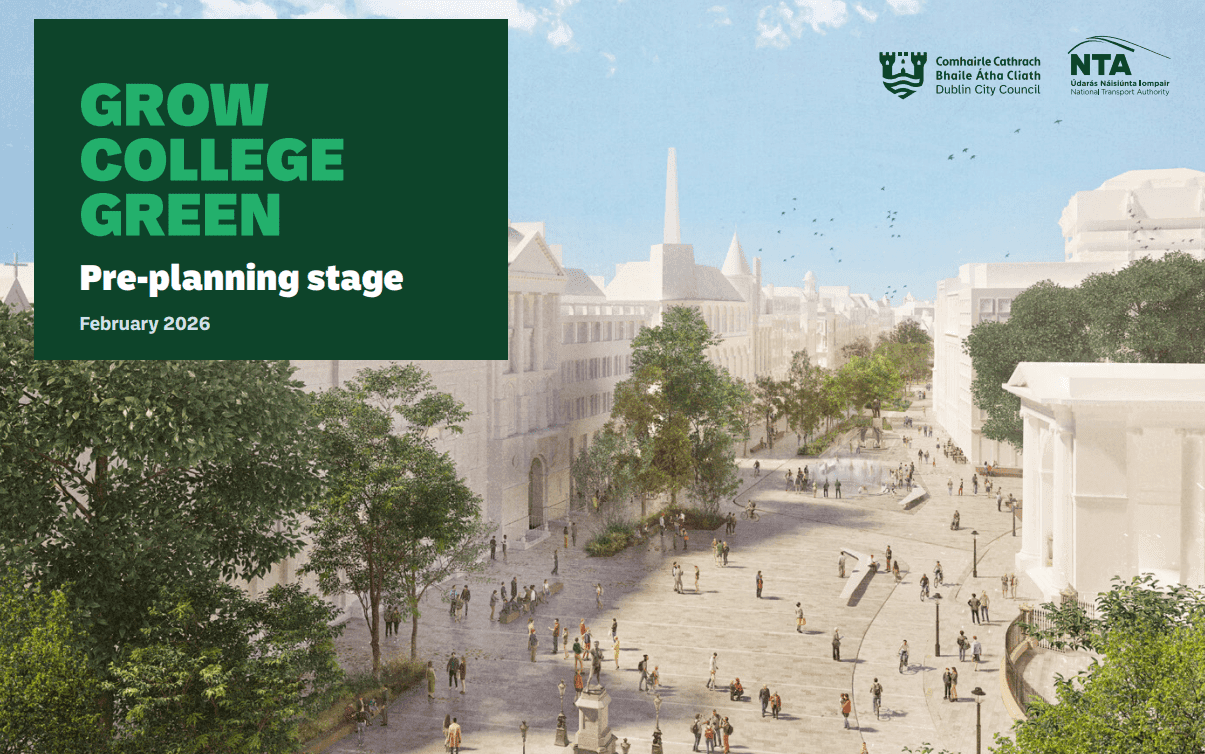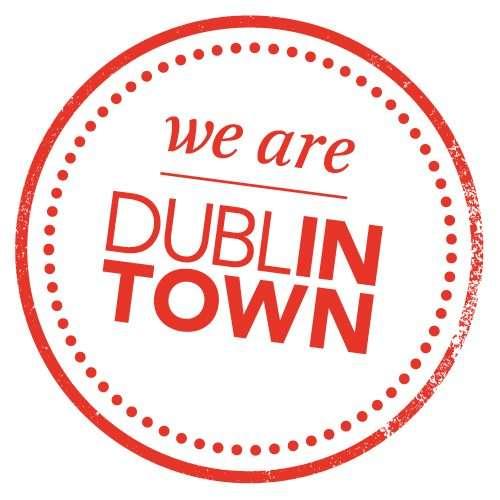DublinTown 2021 Pre-budget submission

- Mon 12 October, 2020
Below is the pre-budget submission made to Department of Finance by DublinTown
DublinTown 2021 Pre-budget submission
October 2020
Since the beginning of the Covid 19 pandemic, the Dublin Town refrain has remained the same, we must retain as many businesses in situ as possible until there is a resolution to the Covid Crisis and secondly we must plan for a viable and vibrant city centre post pandemic.
In order to achieve these objectives there are a number of important steps that we must take.
Maintaining businesses in situ
Wage Subsidy
The wage subsidy supports have been of critical importance in maintaining businesses in Dublin city centre as elsewhere. While the transition to the EWSS has maintained a level of necessary support, it is generally believed by city businesses that this is unlikely to be as effective as the previous TWSS scheme. This relates to both the level of support provided and the promptness of reimbursement. While the commitment to paying EWSS payments by 5th of the following month is welcome, city traders are experiencing significant cashflow constraints and any delays are in receipt of support could prove extremely difficult.
It is recommended that wage subsidy supports are targeted at sectors most need of support, being hospitality, retail, entertainment, events and culture. These industries have suffered through the imposition of restrictions and reduced footfall. Given current constraints large scale closures in the new year will be inevitable without continued support.
Finance and cashflow supports.
The maintenance of the Credit Guarantee Scheme and other liquidity supports will be required, not only for the period of the pandemic but also afterwards as businesses adjust to the new dynamic that results from the impacts of the crisis on how people shop, socialise and seek entertainment in the short to medium term.
Fast track administrations for SME’s.
The recently published Government guidance on Landlord/Tenant arrangements is welcome. It can be made more effective where it is supported through a fast tracking of the administration process for SME’s. It will also be worth considering the selection of mediators and arbitrators who are not dependent on property interests for their income to ensure a fair and equitable system is in place.
Facilitating trade
Ultimately, sales are more sustainable than subsidies. If we are going to live with the virus, we all need to be aware of the rules for trade, which must be applied consistently and coherently. Similarly, messaging needs to be clear and unambiguous. The business community wishes to engage directly with Government to share an understanding of how virus transmission can be limited particularly in hospitality settings. It is noticeable that very few Gardaí, transport workers and grocery workers fell ill during the height of the pandemic. Few hospitality or retail workers have fallen ill since the phased lifting of restrictions began on 8th June. The measures to reduce transmission within business premises and amongst staff appear to be successful and these lessons may provide best practice guidelines for wider society.
Living with the virus will entail safe and controlled use of public transport and also safe and controlled re-introduction of staff into the office environment. In this context supports for office improvements including perspex screens and office PPE will be required.
VAT
In our Pre-Budget submission for 2020 Dublin Town called for the reduction of VAT rates to 20% for the standard rate and 10% for hospitality businesses. Given the impacts on retail and hospitality and the increased threat from international on-line retailers it is now more essential than ever that Ireland’s VAT rates are brought into line with those of our neighbours. Dublin Town would also make the point that a decrease in VAT should be primarily seen in the context of improving cash flow and limiting losses amongst retail and hospitality businesses.
Local Authority Funding
The pandemic has further highlighted the need to link local authority charges with ability to pay. Rates waivers have been necessary and should be extended not only for the remainder of 2020 but until there is an end to the crisis driven by the pandemic.
However, in the longer term we need to find a more sustainable way to pay for local authority services. This is likely to be best achieved through the collection of local authority charges by Revenue Commissioners based on Corporation and Income tax returns. A business improvement district levy could also be set as a percentage of local authority income for the relevant district.
Longer term viability
Covid 19 will give rise to longer term impacts for our towns and cities. These need to be planned for and investments will be required. In this context the Government Policies of Town Centre First and also the establishment of A Night-Time Economy Task Force are important steps. We believe that the Night Time Economy Task Force could be rendered more effective with appropriate private sector input. Town centre strategies which fully consider the importance of retail, hospitality and leisure industries must be developed.
In this context we must review planning regulations to allow for more mixed use development within town centres. Additional space is going to become available as patterns of retail change and while some of this can be dedicated to residential uses we must balance this with the need for leisure, entertainment and hospitality uses that will increase vibrancy and create a welcoming destination for both residents and visitors.
Living Over The Shop
There is likely to be increased residential uses within our town centres. In this regard we need a comprehensive review of the Living Over the Shop programme. For example, the interaction between health and safety and heritage conservation has not been sufficiently clear for building owners and such conflicts have rendered the schemes unattractive. It may be the case that properties are brought onto the market in the knowledge that they don’t meet all 21st century standards. This may require a relaxation of certain expectations in an open and transparent fashion.
Dublin Town would also advocate the introduction of grants to facilitate the required interventions to bring this building stock into productive use rather than tax write offs. The system needs to be clear and transparent to all parties.
Investment in public transport
We must not use the pandemic as an excuse to forestall the investments required to bring Dublin’s public transport system up to the standard required.
Many of the projects required to develop our public transport system are contained in the NTA’s plans to 2035. However, Dublin Town believes that the timescale for delivery is simply too long and these plans must be consolidated. We also firmly believe that the proposed extensions to the Luas system to Finglas, Lucan and Bray must be completed.
The reality is that we will have a post Covid world and we must continue to plan and invest in it. The issue of climate change will not simply go away. We must address it and take the measures required to reduce our collective carbon footprint. In this regard sustainable transport must be promoted. The public are currently being encouraged not to use public transport. This could have impacts that outlive the pandemic and this must be addressed.
Similarly, we need to invest in Green Infrastructure to restrict the speed at which rain water enters the drainage and waste-water systems. We cannot have waste-water escaping into the Liffey and Irish sea as happened on 2 separate occasions in August 2019.
Dublin’s water infrastructure is antiquated and operating at unsustainable levels. This needs significant investment and the connection of Dublin’s water system to the Shannon system. This is a priority. Completing this infrastructure upgrade should be paid for by all of those who use it.
Perceptions of Public Safety
Perceptions of public safety have continually weighed against visits to Dublin city centre. Since the Covid crisis these concerns have become more pronounced. Many of the issues that cause concern for the public simply do not occur when there are Gardaí visible on the street. Pre-Covid Dublin city centre welcomed approximately 300,000 people per day. This is greater than the populations of Cork and Limerick cities combined, however, this is not reflected in Garda numbers in Dublin city centre stations. Dublin city can provide an economic return where there is an appropriate investment in the city’s Garda presence.
Similarly, more social services have been housed in the city’s commercial core since the onset of the pandemic. This goes against the findings of the Better City For All group and also international best practice which confirms that social services should be provided locally where possible and that over-concentration of services in one location does not best meet the needs of society or service recipients.


